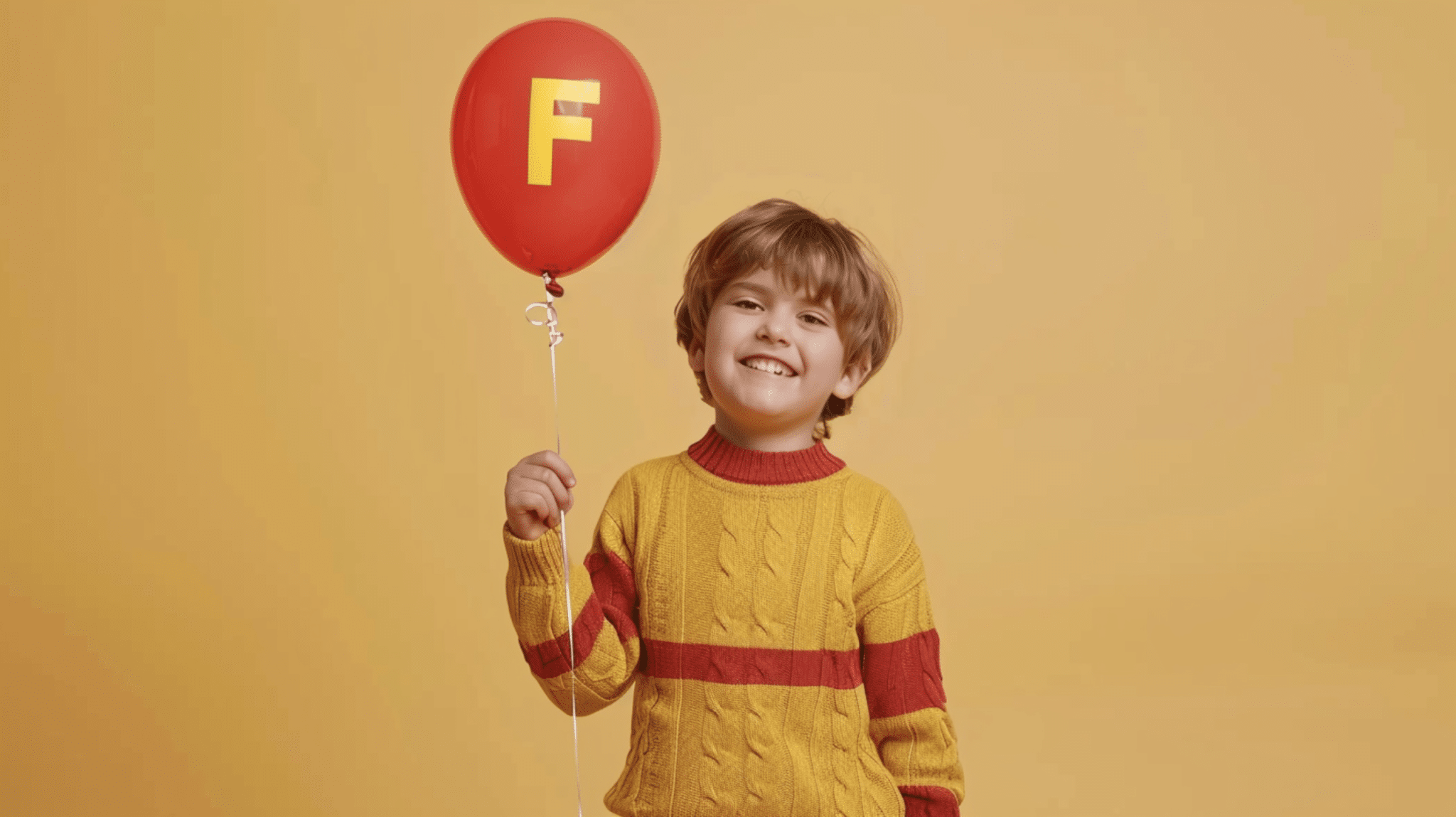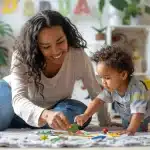As a parent or caregiver, you know that keeping kids engaged and entertained can be challenging.
You want fun and educational activities that help children learn and grow. That’s where letter-themed activities come in!
In this article, we’ll explore 17 exciting activities for kids that start with the letter F.
From simple craft projects to interactive games, these activities will keep your little ones busy and help them develop important skills.
Whether you’re looking for rainy-day ideas or want to add variety to your daily routine, this list has something for everyone.
So, let’s dive in and discover the fantastic world of F activities that will delight and educate your kids!

Flashlight Search is an exciting activity for children aged 3-6 that promotes letter recognition, visual discrimination, and problem-solving skills.
Approximate Time to Complete – 10-15 minutes
Materials Required
| Item | Quantity | Notes |
|---|---|---|
| Flashlight | 1 | Any size or type |
| Sticky Notes | Multiple | Preferably in bright colors |
| Marker | 1 | For writing letters on sticky notes |
| Blank Wall or Large Board | 1 | A clear, large surface area |
Instruction
- Write individual letters on sticky notes using markers. Younger children should focus on uppercase letters, while older kids can practice with uppercase and lowercase letters.
- Place the sticky notes on the wall, spreading them at different heights to create a challenging search area.
- Dim the lights in the room or create a makeshift tent using a blanket to darken the environment.
- Give your child a flashlight and encourage them to search for specific letters on the wall. As they find each letter, have them say it aloud to practice letter recognition and pronunciation.
- To increase the difficulty, ask your child to find letters in a specific order or spell out simple words using their discovered letters.
2. Fish Bubbles Counting
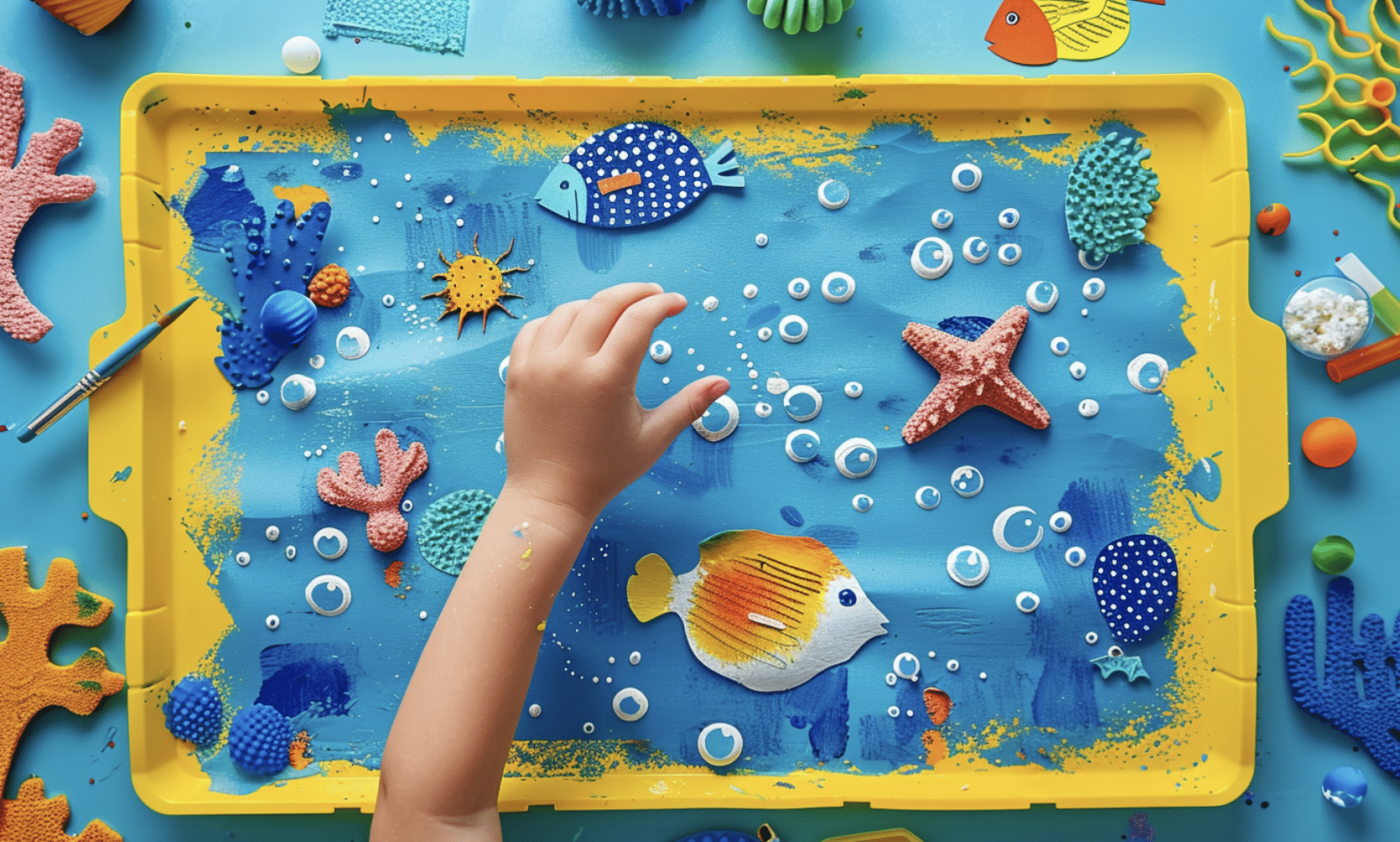
Fish Bubbles Counting is a fun activity for children aged 3-5, encouraging number recognition, counting skills, and fine motor development.
Approximate Time to Complete – 5-10 minutes
Materials Required
| Item | Quantity | Notes |
|---|---|---|
| Fish Bubble Printables | 1 set | It can be found online or created |
| Blue Pebbles or Counters | As needed | To use as counters for the activity |
| Themed Decorations (optional) | Varies | To enhance the underwater theme, like seaweed or fish cutouts |
Instructions
- First, take the printouts of the fish bubble printables and give them to your child.
Provide a small bowl of blue pebbles or other small manipulatives that can be used as counters. - Start with simple one-to-one correspondence by having your child place one pebble on each bubble as they count aloud.
- As your child becomes more comfortable with counting, introduce more challenging activities. For example, ask them to place a specific number of pebbles on each fish or have them count the total number of bubbles on each printable.
- Encourage your child to practice counting differently, such as backward or skip counting by twos or fives.
3. F is for Fish Craft
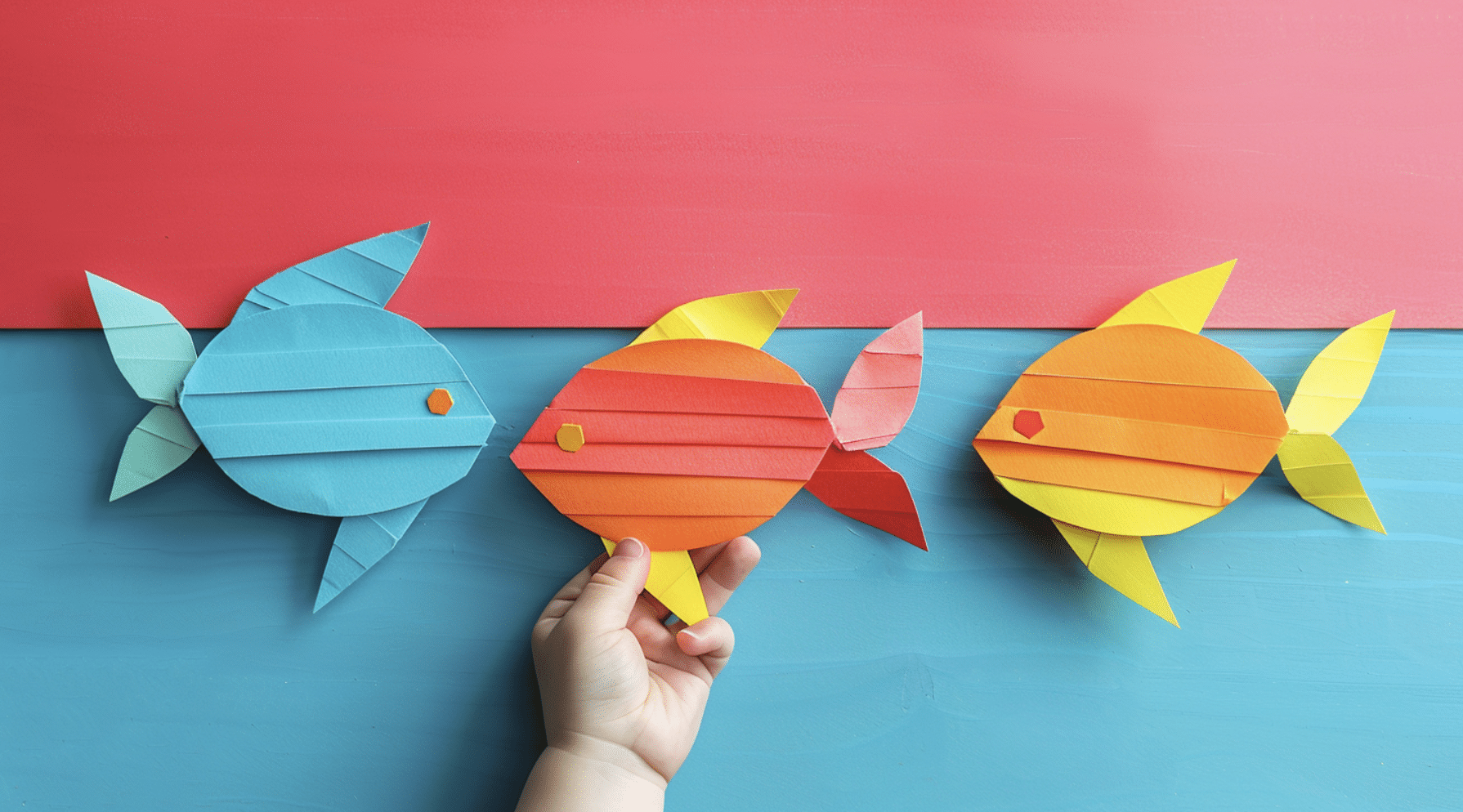
F is for Fish Craft, which is a cute and creative activity for children aged 3-6 that promotes letter recognition, fine motor skills, and artistic expression.
Approximate Time to Complete – 15-20 minutes
Materials Required
| Item | Quantity | Notes |
|---|---|---|
| Colored Paper | Multiple sheets | Various colors, including orange for the fish |
| Scissors | 1 pair | Safety scissors for younger children |
| Glue | 1 bottle or stick | For assembling the craft |
| Markers or Embellishments | As needed | For decorating the fish, like googly eyes or glitter |
Instructions
- Cut a large letter ‘F’ shape out of orange construction paper to serve as the fish’s body.
- Cut smaller shapes from orange paper to create fins and a tail for the fish. Help your child glue these pieces onto the ‘F’ shape.
- Glue googly eyes onto the fish to bring it to life.
- Encourage your child to decorate their fish with markers or crayons, adding scales, patterns, or other details to make it unique.
- Once the glue has dried, help your child write the letter ‘F’ on the fish’s body to reinforce letter recognition.
4. Feed the Frog Game
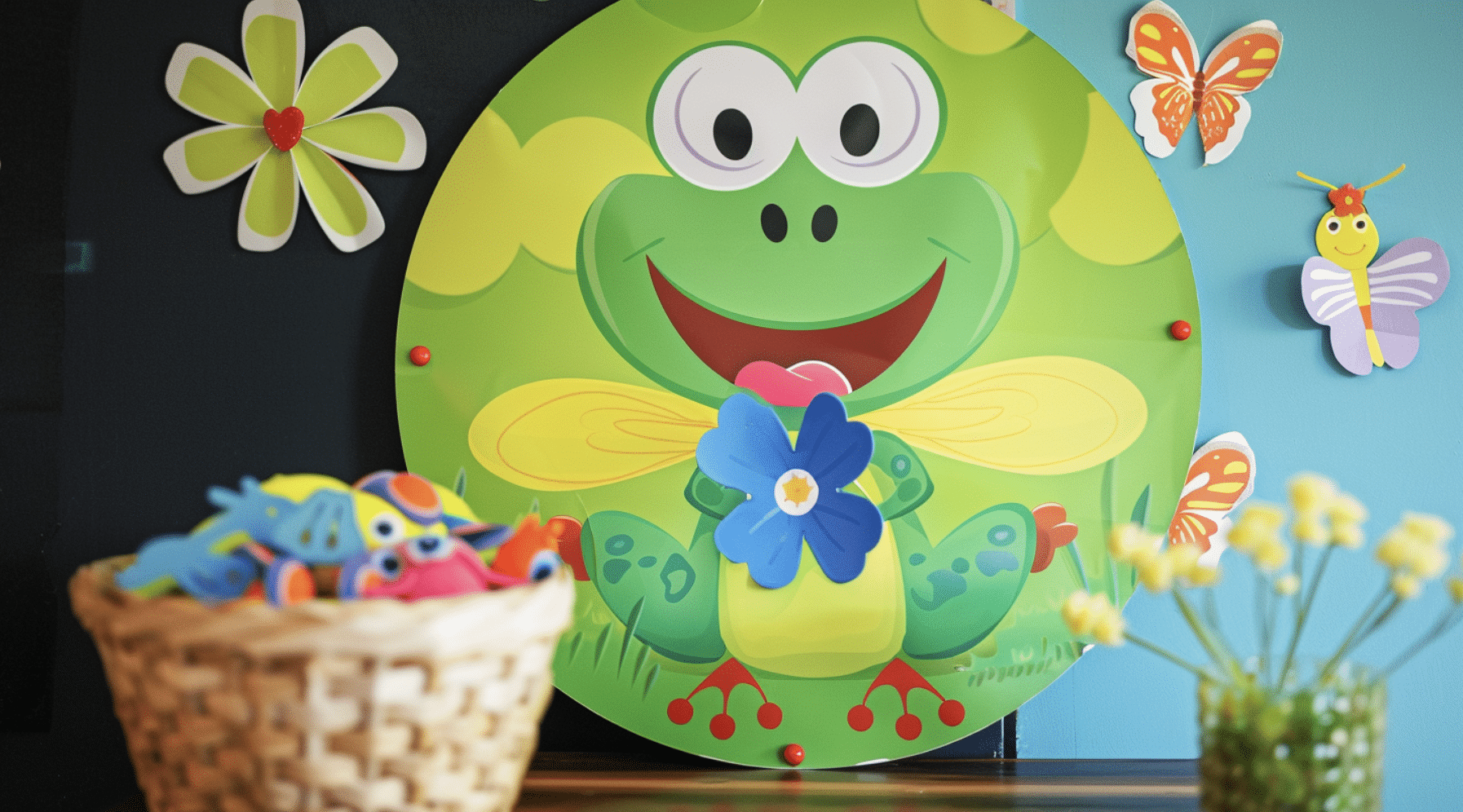
Perfect for preschoolers aged 3-5, the Feed the Frog Game helps develop hand-eye coordination and fine motor skills as children use tongs to pick up and feed the frog.
Approximate Time to Complete – 10-15 minutes
Materials Required
| Material | Quantity | Notes |
|---|---|---|
| Frog-themed container | 1 | It can be a decorated container or a toy frog |
| Plastic bugs | Multiple | Assorted sizes and colors for a variety |
| Tongs | 1 | Kitchen tongs are suitable |
Instructions
- To create the frog container, glue two googly eyes on a clean, empty parmesan cheese container.
- Fill a small tray or bowl with plastic bugs.
- Give your child a pair of tongs and demonstrate how to pick up the bugs individually.
- Encourage your child to use the tongs to pick up the bugs and ‘feed’ them to the frog by placing them inside the container.
- Make the game more challenging by having your child race against a timer or compete with a sibling or friend to see who can feed the frog the most bugs.
5. Five Green & Speckled Frogs Puppet Play
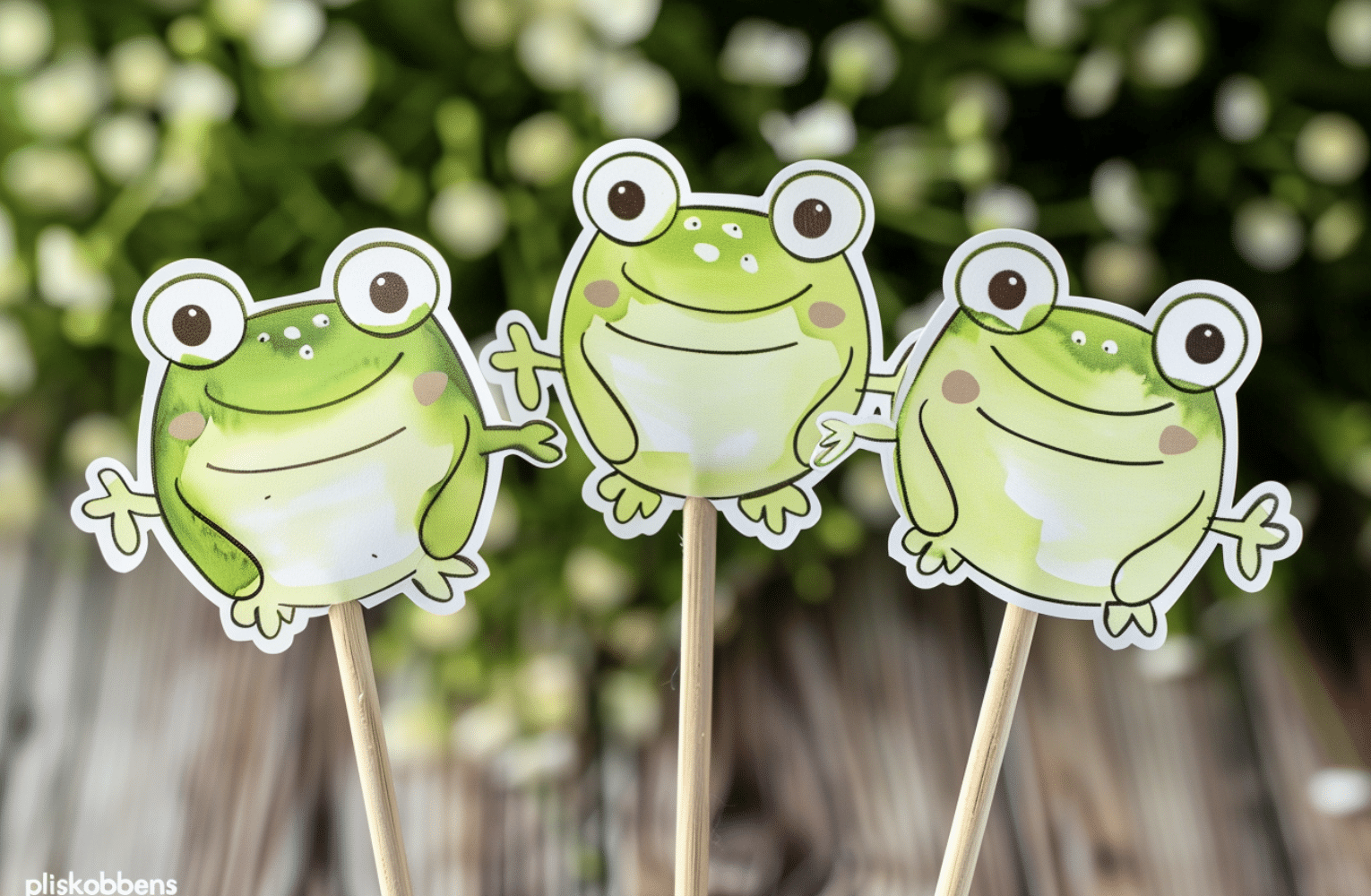
Ideal for children aged 3-6, the Five Green & Speckled Frogs Puppet Play encourages language development, storytelling, and creativity.
Approximate Time to Complete -10 minutes
Materials Required
| Material | Quantity | Notes |
|---|---|---|
| Frog printables | Multiple | Print from online resources |
| Craft sticks | As needed | For puppet handles |
| Pool noodles | 1-2 | Cut into pieces for the ‘log’ |
Instructions
- Take a printout of the frog puppets and carefully cut them out.
- Tape each frog puppet to a craft stick, ensuring the tape is secure.
- Help your child familiarize themselves with the “Five Green and Speckled Frogs” rhyme.
- Use the puppets to act out the rhyme, having each frog jump off the ‘log’ (your arm or a rolled-up towel) as the rhyme progresses.
- Encourage your child to sing along and use the puppets to tell the story.
6. Flower Craft
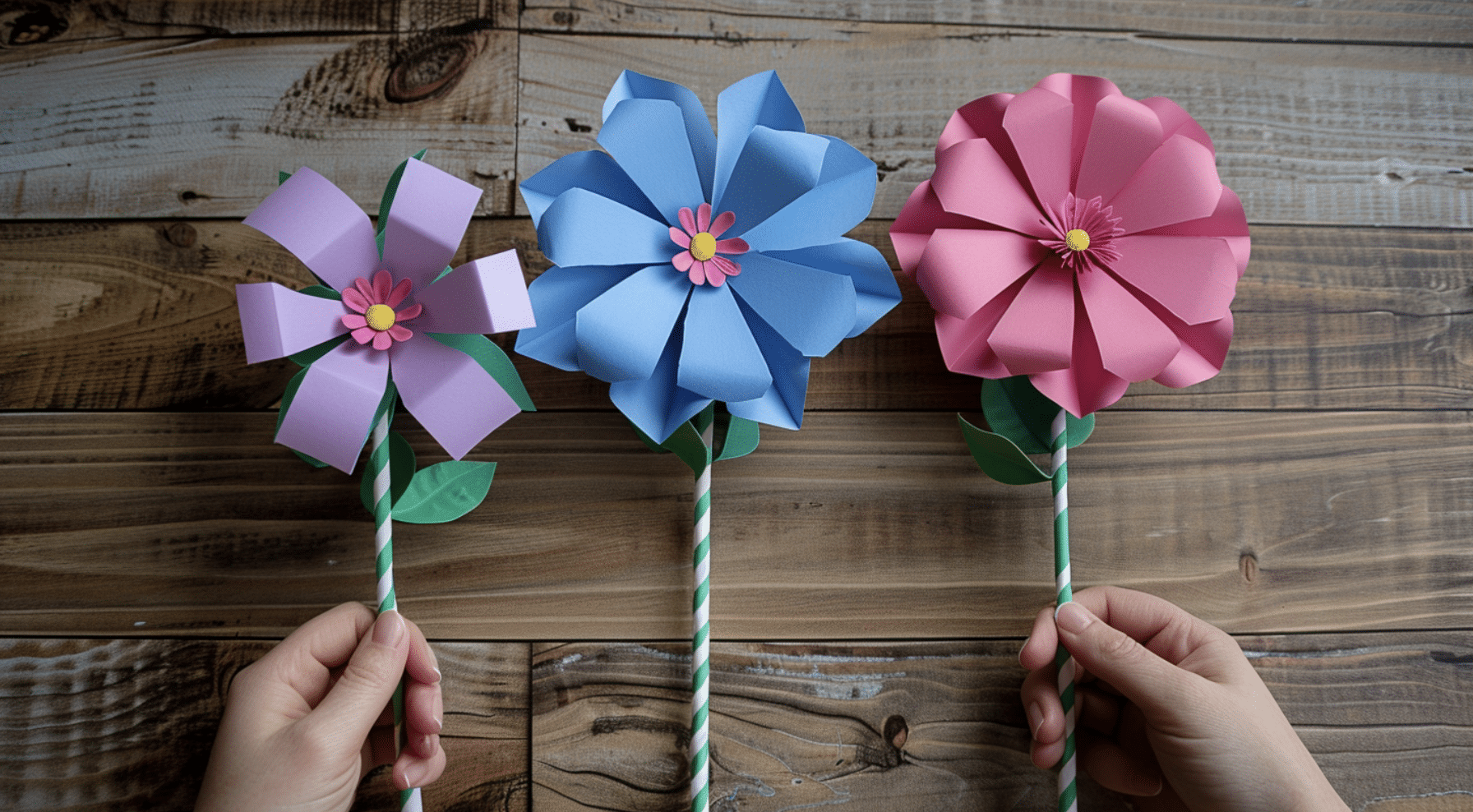
This colorful flower craft is suitable for children aged 4-7 and helps develop fine motor skills, color recognition, and creativity.
Children will enjoy painting, cutting, and assembling their unique flower creations.
Approximate Time to Complete – 20-30 minutes
Materials Required
| Material | Quantity | Notes |
|---|---|---|
| Paper plates | As needed | The base of the flower |
| Construction paper | Multiple sheets | Various colors for petals and leaves |
| Glue | 1 bottle | Stick or liquid glue |
| Scissors | 1 pair | Safety scissors for younger children |
Instructions
- Paint a paper plate red, covering the entire surface and sides. Allow it to dry completely.
- While the plate is drying, cut out a yellow circle for the center of the flower and a green stem and leaf from construction paper.
- Once the plate is dry, help your child outline the petals on the back.
- Carefully cut out the petals along the outline, creating a flower shape.
- Glue the yellow circle in the center of the flower and attach the green stem and leaf to the bottom.
7. Flower Printables
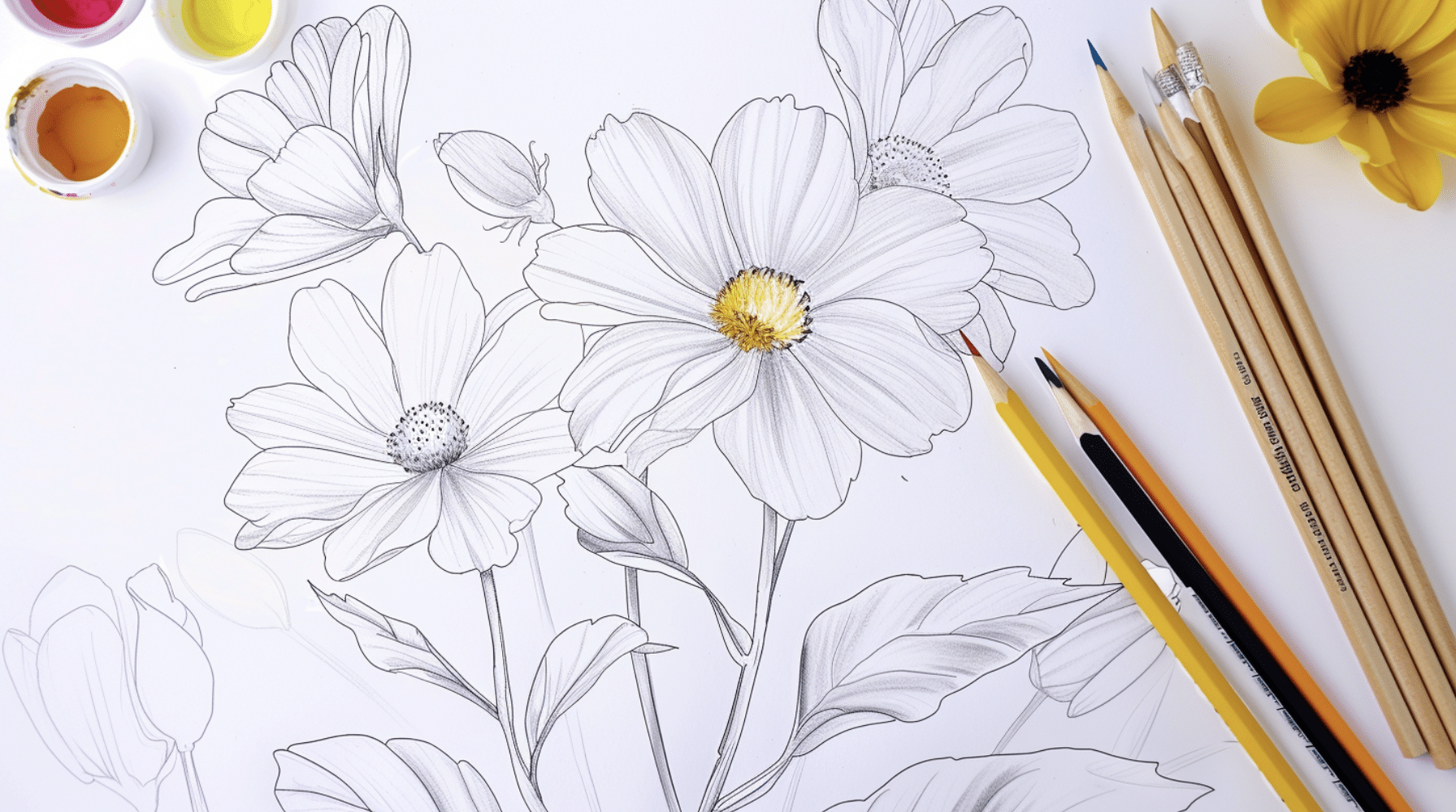
Designed for children aged 4-6, these flower printables focus on number and shape recognition while providing a fun, hands-on learning experience.
Approximate Time to Complete – 5-10 minutes
Materials Required
| Material | Quantity | Notes |
|---|---|---|
| Flower-themed number puzzles | Multiple | For counting practice |
| Sorting printables | Multiple | For sorting shapes, colors, or sizes |
Instructions
- Take a printout of the flower number puzzle and flower shape sorting activities.
- For the number puzzle, please help your child identify the numbers on each piece and match them to the corresponding spots on the flower.
- For the shape-sorting activity, have your child place the correct flower shape in each section of the flower case.
- Then, please encourage your child to say the number or shape name aloud as they complete each task.
8. Fruit Shadow Match
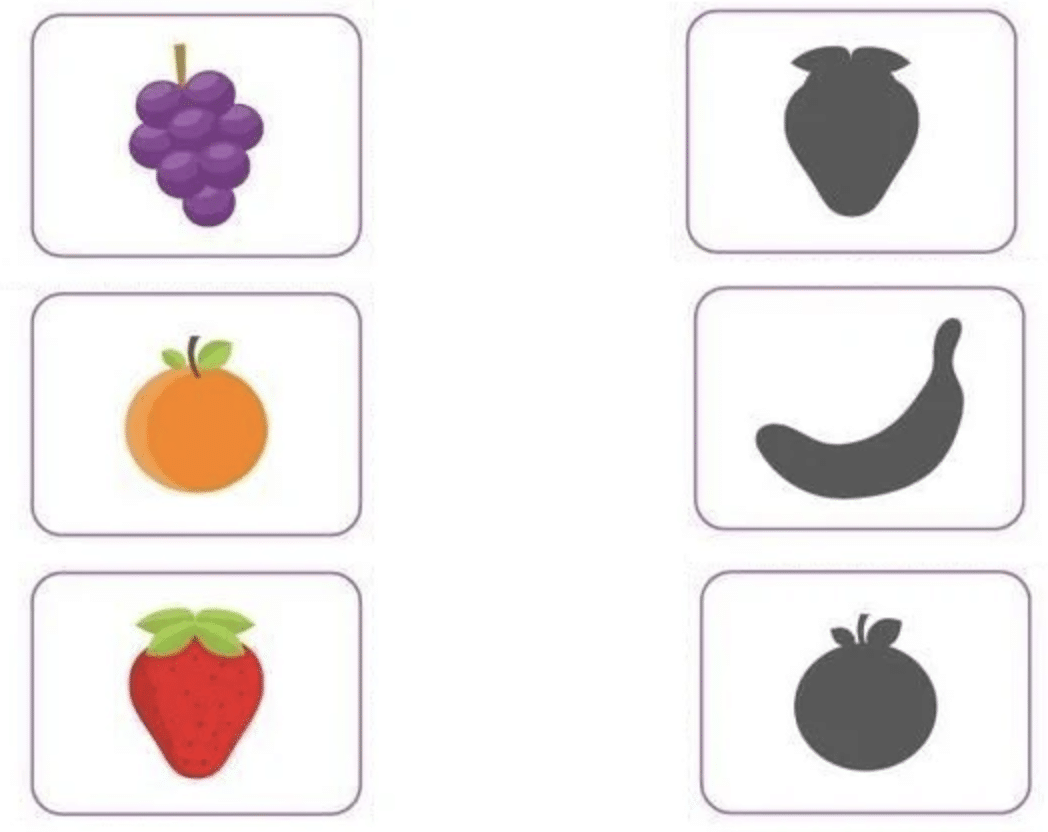
The Fruit Shadow Match game is perfect for children aged 3-5 and helps develop visual perception and matching skills.
Approximate Time to Complete – 5-10 minutes
Materials Required
| Material | Quantity | Notes |
|---|---|---|
| Shadow match printables | 1 set | It can be printed online |
| Fruit shapes or images | Multiple | Real fruits or printed images for matching |
Instructions
- First, take the printout of the fruit shadow match cards and cut them out.
- Place the fruit cards face-up on a table and mix the shadow cards in a pile.
- Then, have your child select a shadow card and place it next to the matching fruit card.
- Continue until all the shadows have been matched with their corresponding fruits.
- Use real fruits from your play kitchen for an extra challenge, and have your child match them to the shadow cards.
9. Foil Painting
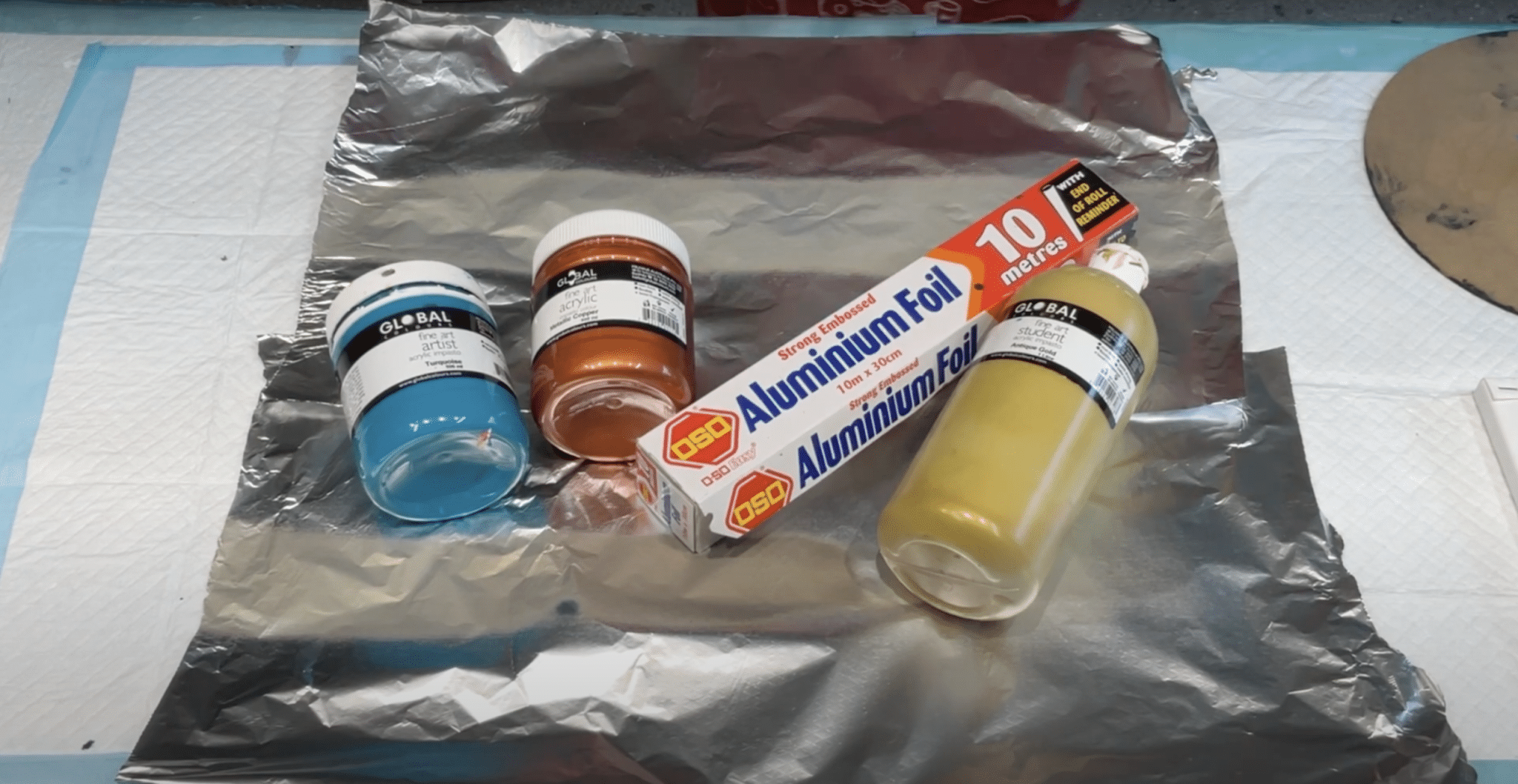
Foil painting is an exciting art project for children aged 4-8 that encourages creativity and experimentation with different textures and patterns.
Approximate Time to Complete – 15-20 minutes, plus drying time.
Materials Required
| Material | Quantity | Notes |
|---|---|---|
| Foil | As needed | Enough to cover the cardboard |
| Paint | Multiple colors | Water-based for easy cleanup |
| Tape | 1 roll | To secure the foil to the cardboard |
| Cardboard | 1 piece | The base for the painting |
Instructions
- Cover a piece of cardboard with aluminum foil, ensuring it’s smooth and wrinkle-free.
- Use masking tape to create designs or patterns on the foil-covered cardboard.
- Squeeze a small amount of washable paint into a container and add a drop of dish soap to prevent the paint from flaking off once dry.
- Encourage your child to paint over the entire surface, covering the foil and tape.
- Allow the paint to dry completely, then remove the tape to reveal the design.
10. Face Painting
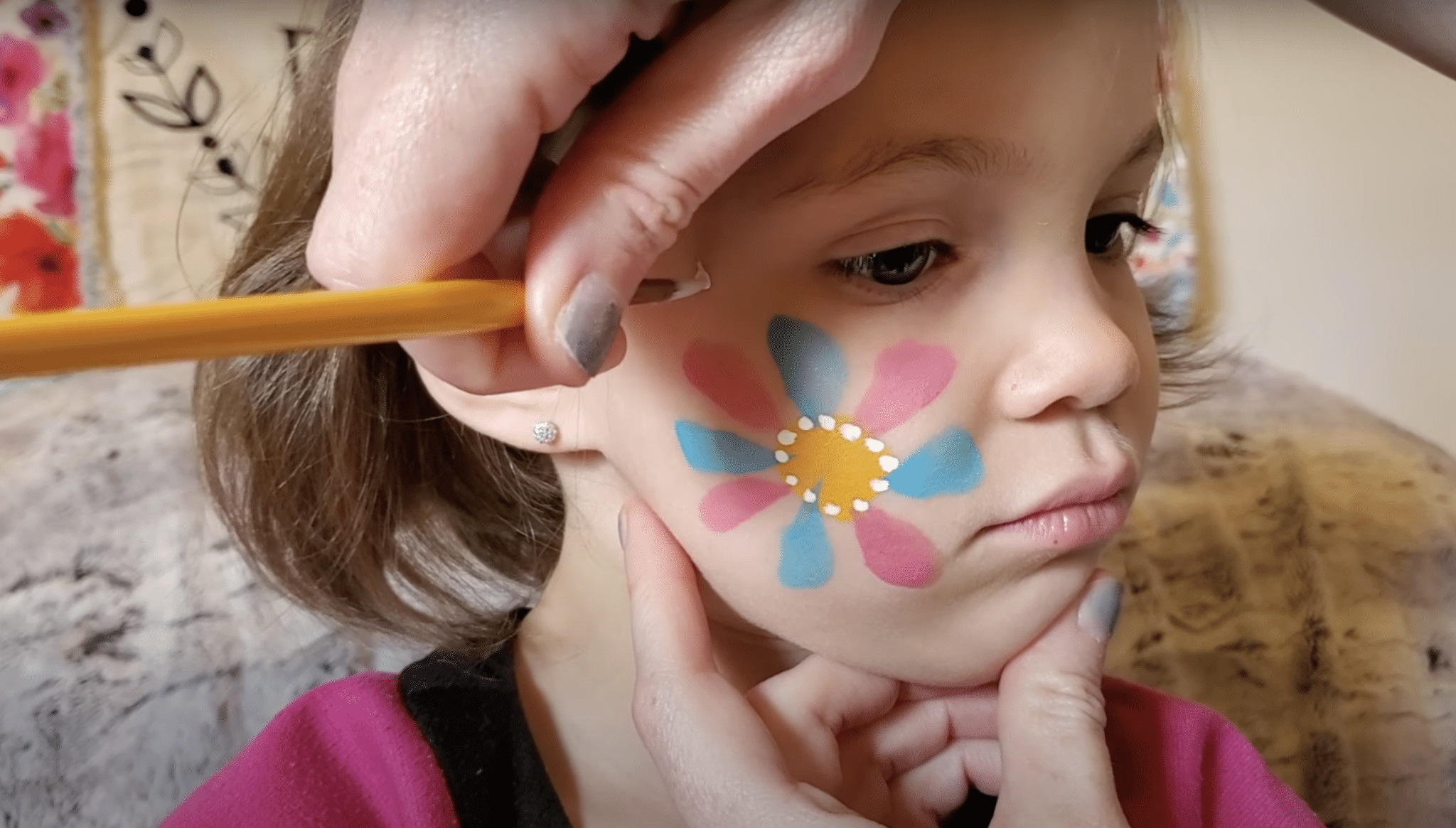
Face painting is a fun and creative activity for children aged 3 and up. It allows them to express themselves and explore their imagination.
Approximate Time to Complete – 10-20 minutes per design, depending on the complexity and the child’s age.
Materials Required
| Material | Quantity | Notes |
|---|---|---|
| Washable face paints | 1 set | Non-toxic, easy wash |
| Brushes | Multiple sizes | Various sizes for different details |
| Design ideas | Multiple | It can be found online or in books |
Instructions
- Set up a face painting station with washable, non-toxic face paints, brushes, sponges, and a mirror.
- Using a damp sponge or brush to apply the paint, begin with simple designs like hearts, stars, or flowers.
- For more intricate designs, use a thin brush and have your child hold still while you paint.
- Then, please encourage your child to choose their designs or ask for specific characters or animals.
- Use a damp cloth to clean the skin and remove the paint when finished.
11. Fairy Garden Creation
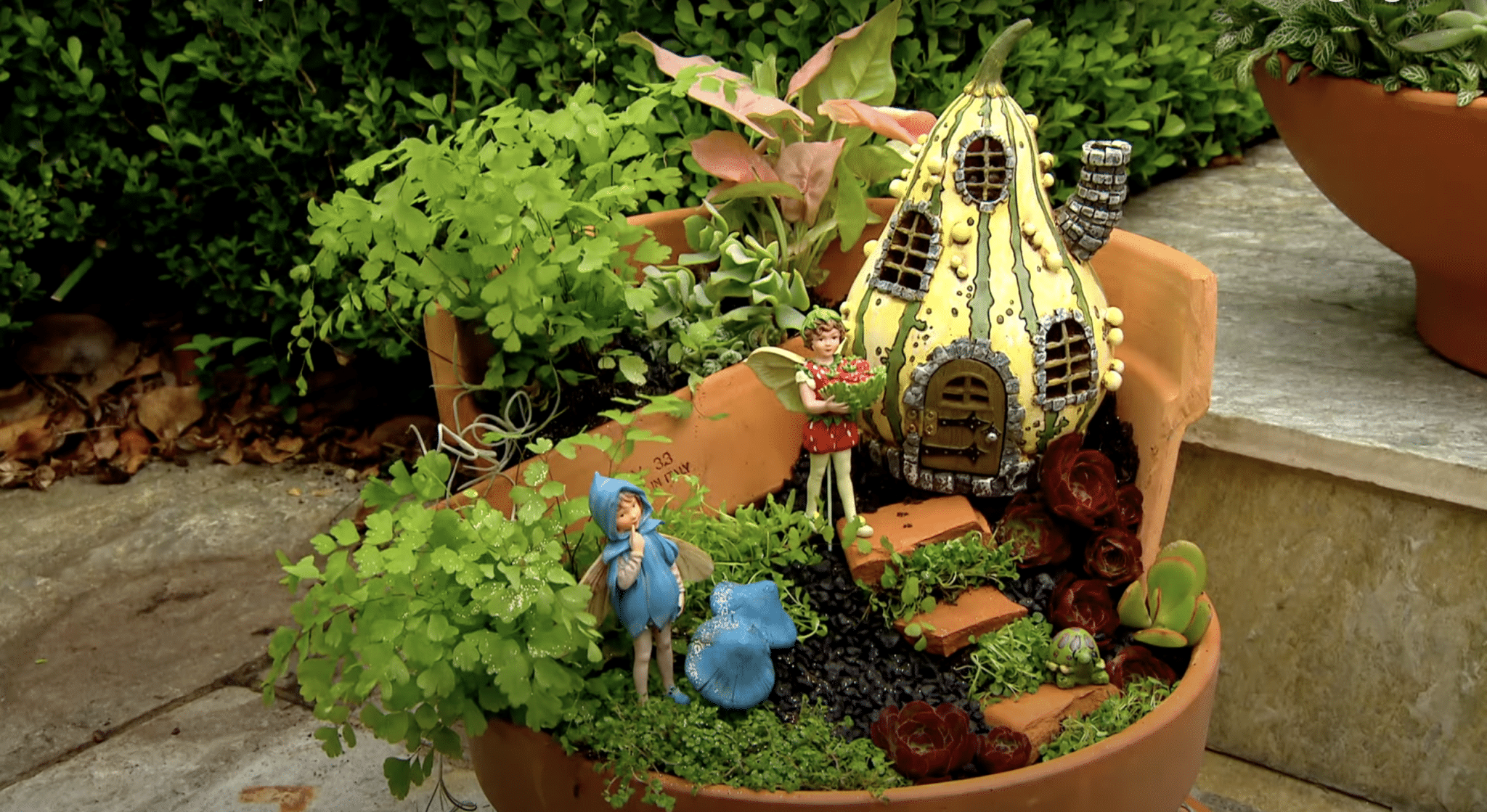
Fairy Garden Creation is a delightful activity for children aged 4-10, encouraging creativity, imagination, and fine motor skills.
Approximate Time to Complete – 30-45 minutes
Materials Required
| Material | Quantity | Notes |
|---|---|---|
| Small plants | Multiple | Succulents or small flowers |
| Tiny decorations | As needed | Fairies, stones, miniature furniture |
| Container | 1 | Terracotta pot or large bowl |
Instructions
- Gather materials such as a shallow container, potting soil, small plants, pebbles, and miniature decorations.
- Then, please help your child fill the container with potting soil and arrange the plants, pressing them gently into the soil.
- Create paths and areas for the fairies using pebbles, small stones, or shells.
- Add miniature decorations like fairy houses, benches, or toadstools to bring the garden to life.
- Encourage your child to care for the garden by watering the plants and rearranging the decorations.
12. Finger Painting
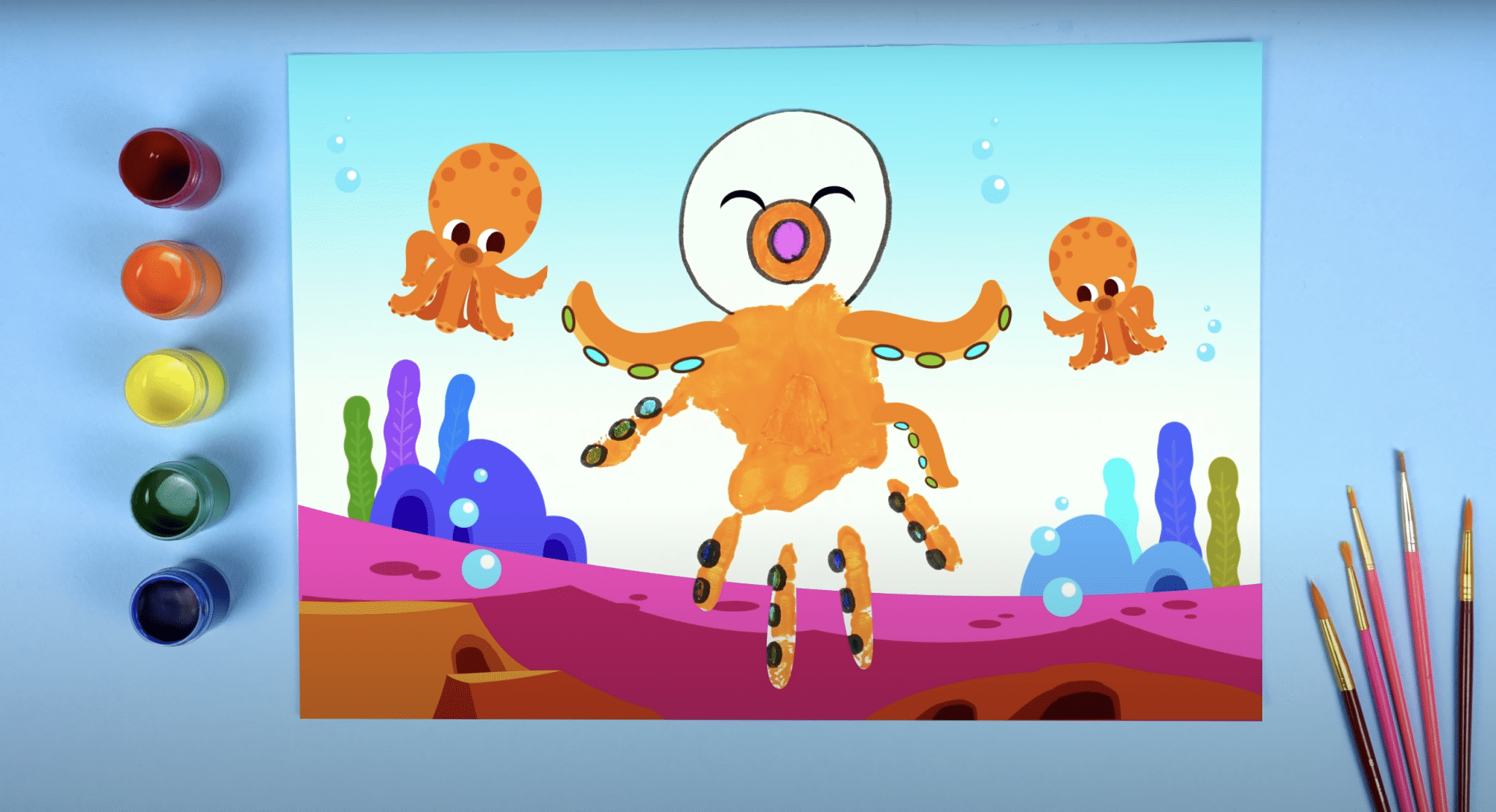
Finger painting is perfect for toddlers and preschoolers aged 2-5, promoting sensory exploration, creativity, and fine motor development.
Approximate Time to Complete – 15-30 minutes
Materials Required
| Material | Quantity | Notes |
|---|---|---|
| Finger paints | Multiple colors | Washable paints |
| Paper | Multiple sheets | Thick paper or cardboard |
| Protective covering | 1 | Newspapers, plastic sheets, or tablecloths |
Instructions
- Set up a finger painting station with washable, non-toxic paint, paper, and a smock or old shirt to protect clothing.
- Then, encourage your child to explore the paint freely, using their fingers and hands to create designs and patterns.
- Provide a guide or template for your child to follow for specific designs, like rainbows or flowers.
- Experiment with techniques like blending colors, making handprints, or using household objects to create textures.
- Display the finished artwork proudly and encourage your child to discuss their creations.
13. Funny Faces Game

The Funny Faces Game is a fun activity for children aged 4-8 that encourages emotional expression, social skills, and creativity.
Approximate Time to Complete – 5-10 minutes
Materials Required
| Material | Quantity | Notes |
|---|---|---|
| Mirror | 1 | Large enough for kids to see their faces |
| Facial expression examples | Multiple | Pictures from books or printed from online |
Instructions
- Gather a group of children and have them sit in a circle.
- Choose one child to start the game by making a funny face or expressing an emotion.
- The child to their left must mimic the face and then make a new one for the next child to copy.
- Continue around the circle, each child mimicking the previous face and creating a new one.
- Encourage silly faces, animal impressions, and exaggerated emotions to keep the game engaging and entertaining.
14. Frisbee
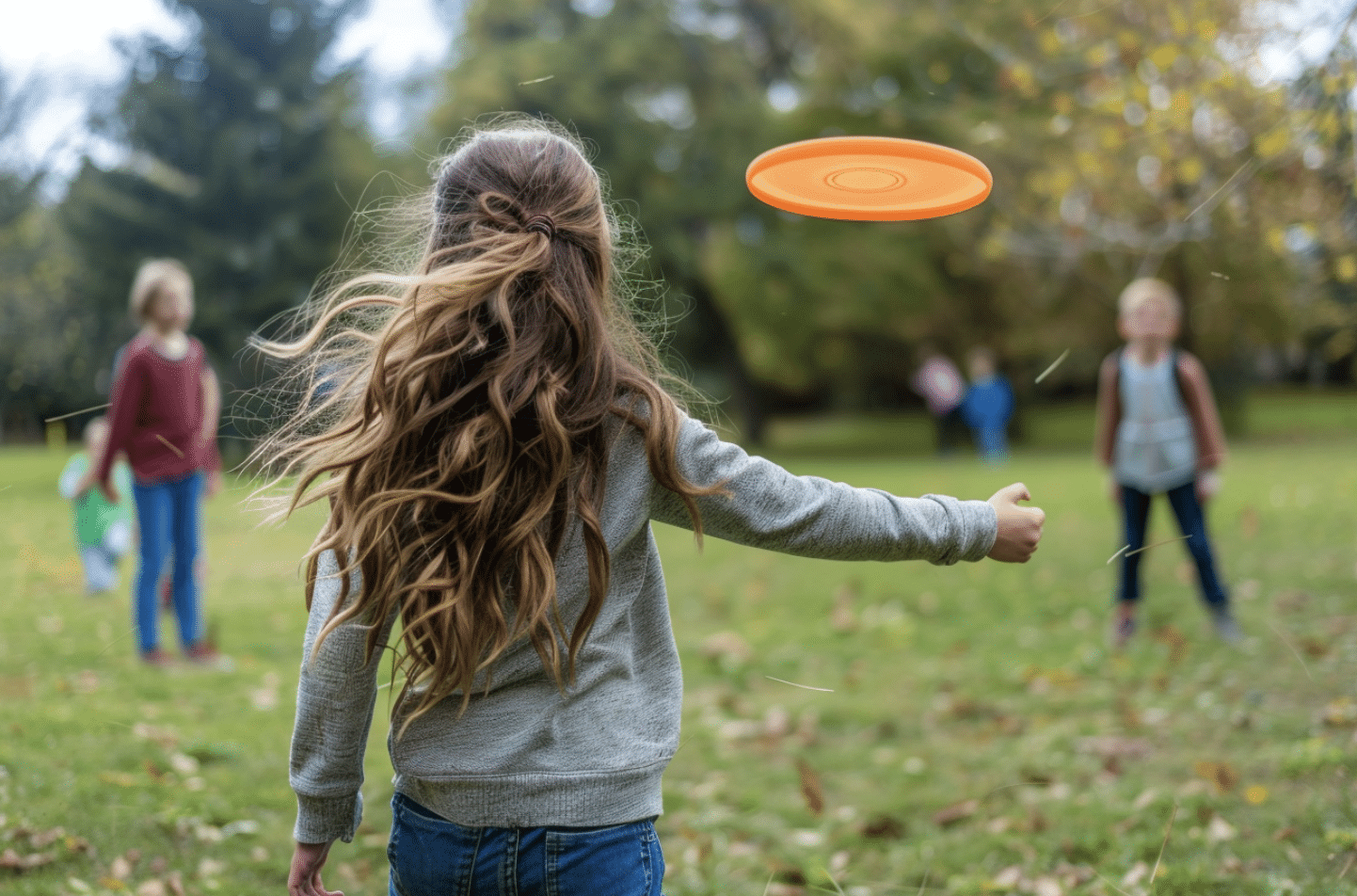
Frisbee is an excellent outdoor activity for children aged 5 and up, promoting hand-eye coordination, gross motor skills, and teamwork.
Approximate Time to Complete -15-30 minutes
Materials Required
| Material | Quantity | Notes |
|---|---|---|
| Frisbee | 1 | Any size or color suitable for the age group |
Instructions
- Find an open area like a park or a spacious backyard to play Frisbee.
- Demonstrate how to hold the Frisbee correctly by placing your thumb on top and index finger underneath the rim.
- Show your child how to throw the Frisbee by flicking your wrist and releasing it flatly, aiming for your partner.
- Have your child practice throwing the Frisbee to you, focusing on technique and accuracy.
- Once your child is comfortable throwing, play catch with friends or family members, encouraging them to run and catch the Frisbee in different positions.
15. Foam Sculpture
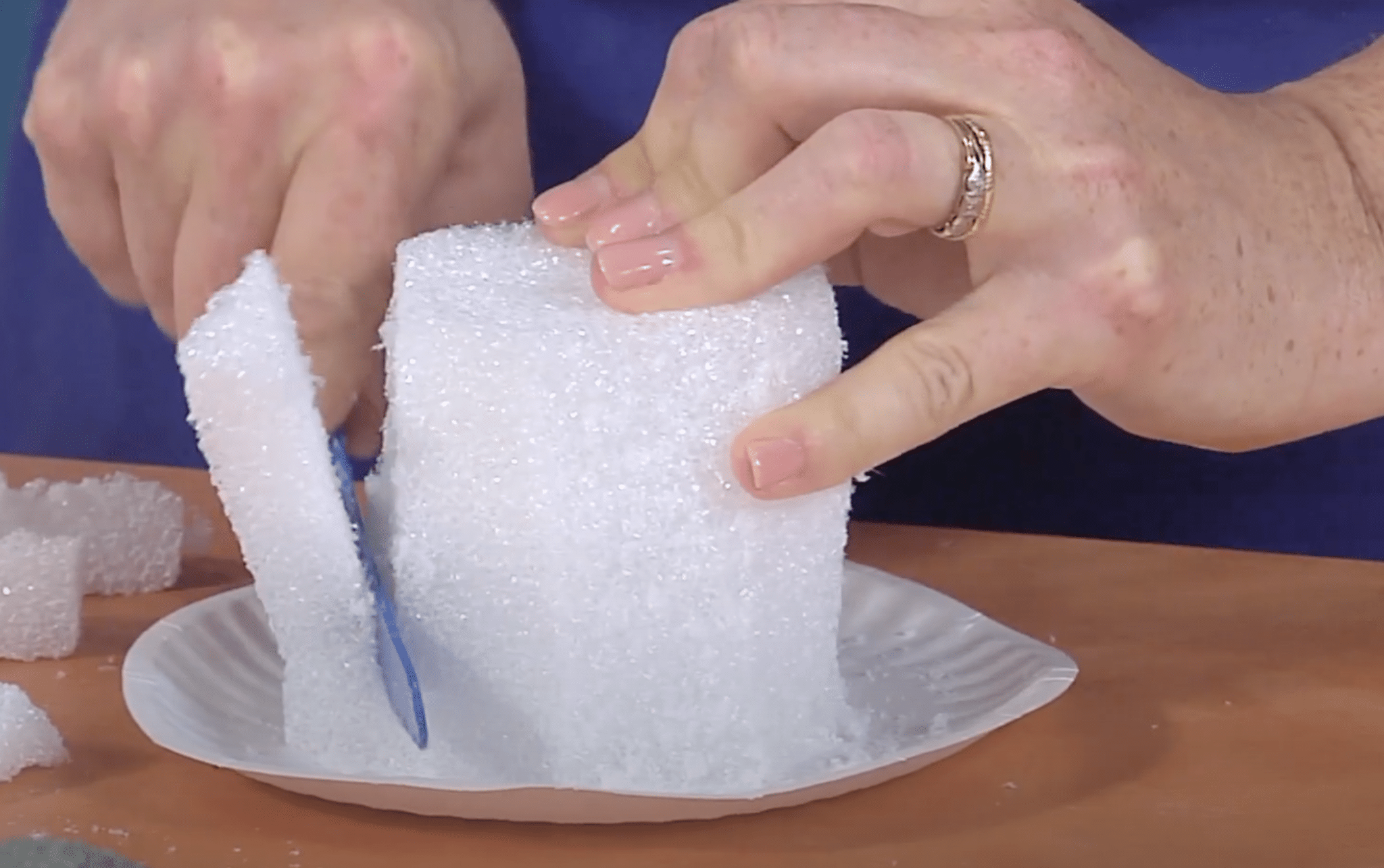
Foam Sculpture is an engaging activity for children aged 6-12 that encourages creativity, spatial awareness, and fine motor skills.
Approximate Time to Complete – 30-45 minutes
Materials Required
| Material | Quantity | Notes |
|---|---|---|
| Foam blocks or shaving foam | As needed | Choose based on the sculpture size |
| A base such as cardboard | 1 | Sturdy enough to support the sculpture |
| Tools for shaping | As needed | Includes knives, spoons, or even hands |
Instructions
- First, help your child plan their foam sculpture by sketching ideas or finding reference images.
- Provide foam blocks or sheets in various sizes and colors for your child to work with.
- They will demonstrate how to shape the foam using age-appropriate tools like blunt scissors, plastic knives, or cookie cutters or by tearing and molding the foam with their hands.
- After that, please encourage your child to create different shapes and textures in their sculpture, layering and combining pieces as desired.
- Once all the pieces are created, please help your child assemble their sculpture on a sturdy base, using glue or toothpicks to secure them.
16. Friendship Bracelets Making
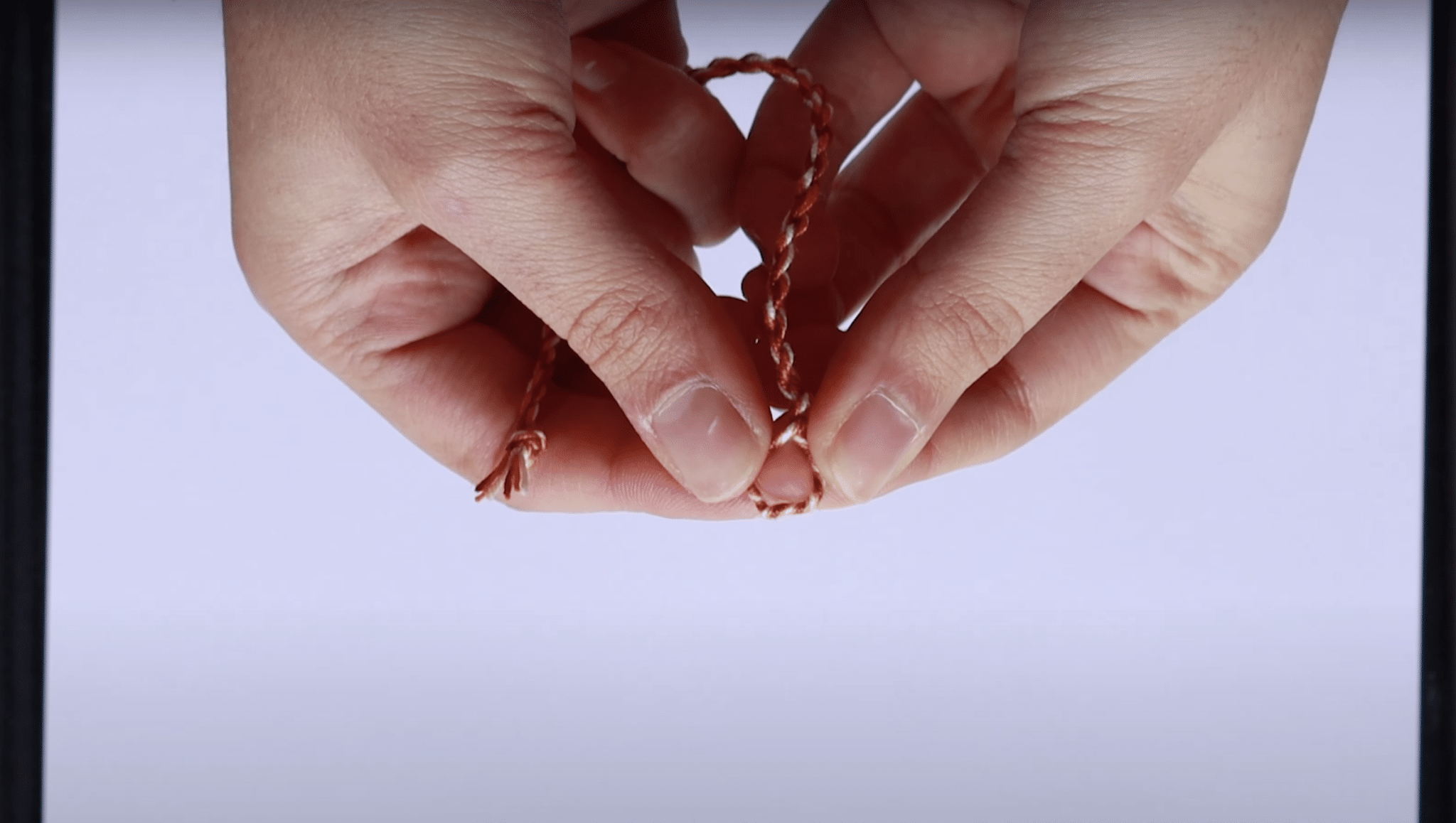
Friendship Bracelets Making is a fun activity for children aged 7-12 that promotes fine motor skills, pattern recognition, and social connections.
Approximate Time to Complete – 20-30 minutes per bracelet
Materials Required
| Material | Quantity | Notes |
|---|---|---|
| Embroidery floss | Multiple colors | Colors can be mixed for designs |
| Scissors | 1 | For cutting floss to length |
| Tape or a clipboard | 1 | To secure the floss while working |
Instructions
- First, help your child choose colors of embroidery floss for their friendship bracelets.
- Cut several strands of floss, each about 24 inches long, and tie them together in a knot at one end.
- Demonstrate a simple braiding or knotting technique, such as a three-strand braid or a diagonal stripe pattern.
- Then, have your child practice the technique, guiding them through the steps until they feel comfortable working independently.
- Lastly, please encourage your child to create multiple bracelets using different colors and patterns, then share them with friends and family as a symbol of friendship.
17. Focus Wall Setup
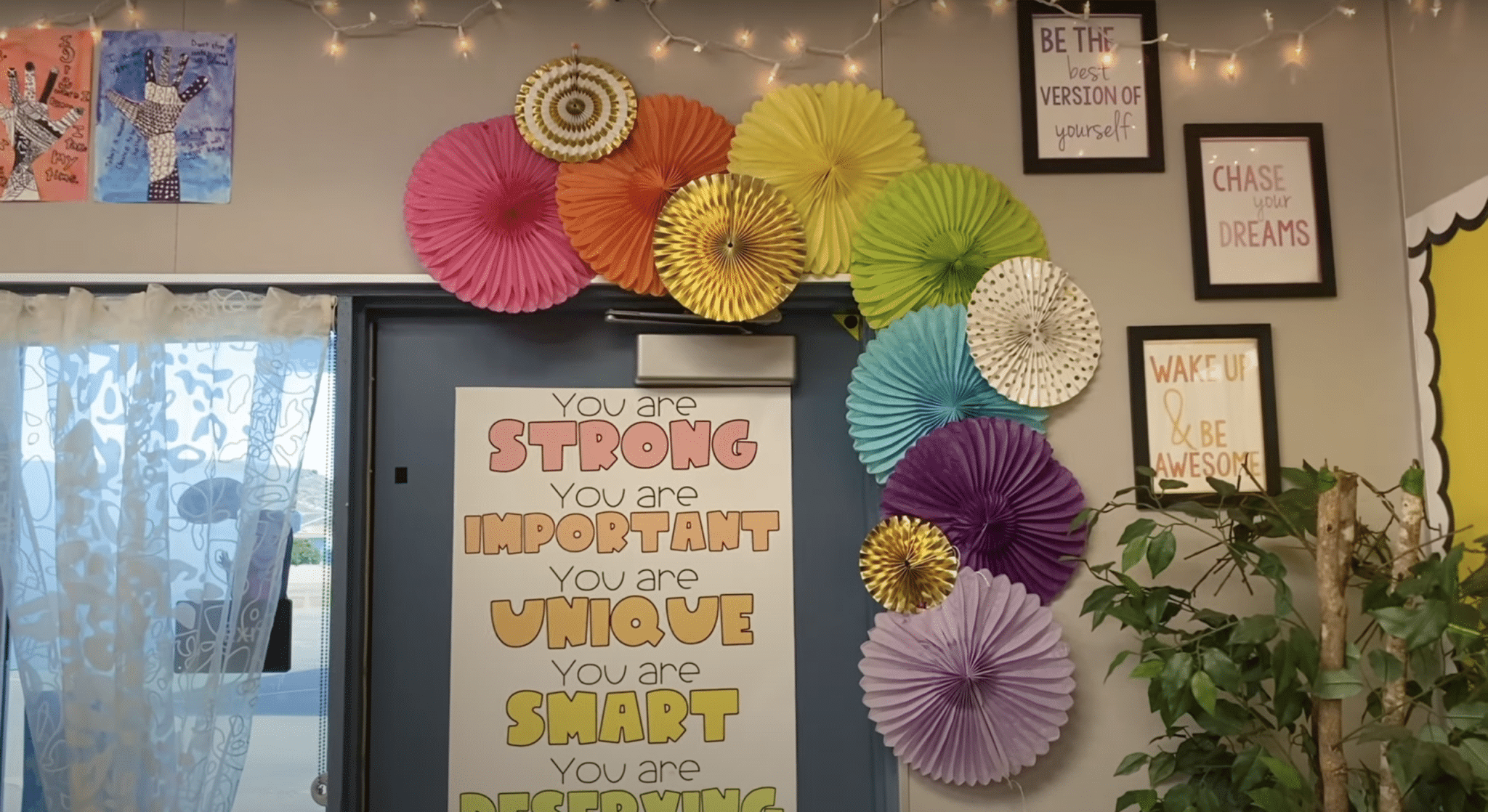
The Focus Wall Setup is a great activity for parents and educators to create an engaging learning environment for children aged 2-6.
Approximate Time to Complete – This project reinforces letter recognition and vocabulary skills and can be updated regularly to maintain interest.
Materials Required
| Material | Quantity | Notes |
|---|---|---|
| Poster board or wall space | 1 | Size based on available space |
| Markers | Multiple | For writing names or descriptions |
| Items that start with the letter F | Multiple | Can include toys, pictures, or handmade items |
Instructions
- Choose a dedicated wall or bulletin board to create your letter F focus wall.
- Gather items and visuals that start with the letter F, such as photos, drawings, or cutouts of flowers, frogs, and fruit.
- Create labels for each item using clear, easy-to-read text to help your child associate the objects with the letter F.
- Arrange the items on the wall in an attractive, eye-catching display, grouping similar objects or creating a theme.
- Review the focus wall regularly with your child, encouraging them to name the objects and emphasize the beginning F sound.
Conclusion
Engaging in fun letter F activities is a fantastic way to help your child learn and grow.
By participating in these creative and educational projects, your little one will develop important skills like letter recognition, counting, fine motor control, and imagination.
From flashlight searches to fish crafts and friendship bracelets, there’s no shortage of exciting ways to explore the world of F.
As you work together on these activities, you’ll support your child’s learning, create precious memories, and strengthen your bond.
So, what are you waiting for? Choose an activity that sparks your child’s interest and dive in!
Don’t forget to share your creations with friends and family, spreading the joy of learning through play.

